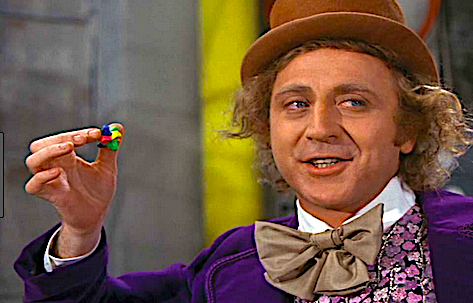It's a gift when they say "I've never heard of it"
Last Christmas season, BBC Radio 4 Extra broadcast a wonderful dramatization of Charles Dickens’ “The Pickwick Papers,'“ his first and only real comedy.
It turns out to be a goofy yet mannered situation comedy, almost a Dickensian “Frasier.” which would have been marvelous had it been filmed in the ‘80s with perhaps Roy Kinnear (Veruca’s dad in Willy Wonka) and a few Pythons. You could almost cast it in your mind as you read it,
It was filmed as a silent, even animated, but the classic version was filmed in 1952, adapted and directed by Noel Langley, one of The Wizard of Oz screenwriters. It starred James Hayter Disney’s live-action Story of Robin Hood) and its cast includes Hermione Baddeley (Mary Poppins), June Thorburn (tom thumb) and Hermione Gingold (Gigi).
I got so hooked on Pickwick that I sought out the musical version by Leslie Bricusse (Doctor Dolittle, Willy Wonka) and Cyril Ornadel (conductor of My Fair Lady). It stars the great Harry Secombe (The Goon Show, Oliver!) as Pickwick and Anton Rodgers (Upstairs, Downstairs) as Alfred Jingle. In his autobiography, Bricusse says that Anton Rodgers was so good as Jingle, he was given the role of Tom Jenkins, the hot soup vendor, who peformed the signature production number, “Thank You Very Much” in the 1970 movie Scrooge .
he Jingle is such a standout a horrible yet charming rogue—very—he was played on radio by Orson Welles himself in 1938.
This was a RECENT world of discovery for me.
What does all this have to do with the above title of this post?
Next time we hear young people say, “I’ve never heard of it,” instead of being miffed at them for their ignorance or at the adults in their life for not guiding them to the “good stuff,” or anguished that nature has made your favorite things suddenly become “old stuff,” consider how grateful we are when a friend “turns us on” to a TV show, film, musical score or what not—and that work becomes a favorite. What a great feeling to be were able to do that for someone!
Isn’t part of why we love what we love, to pass it on, hoping its glories continue to be appreciated? So what if they don’t ultimately like it, even if they tell their friends about it in negative terms—THAT friend could love it. Even close friends don’t like all the same things.
I keep thinking about the line in The Great Muppet Caper during the opening number, when Kermit tells us in the audience, “I wish I were you people seeing this for the first time!”
